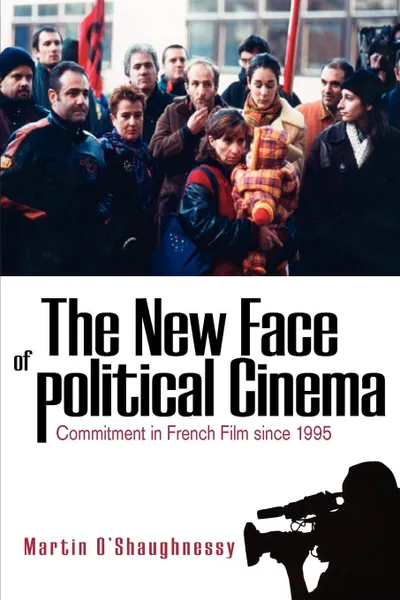The New Face of Political Cinema. Commitment in French Film since 1995 12+
Автор: Martin O'Shaughnessy
2009
206 страниц
Категория: Научная литература
ISBN: 9781845456733
Язык: Английский
📙 "O'Shaughnessy's book succeeds in bringing to light a new tendency in French political cinema, and as such will reward the attention of those interested in political cinema as well as French cinema more generally. The book also further opens up fertile terrain in the 'aesthetic of the fragment'." · Senses of Cinema
"This volume is a major statement on contemporary politically committed cinema. Its strength is that it proposes a careful mapping of the field, teasing out different shades of commitment within the films themselves, and showing the richness of contemporary French cinema in its social-realist mode." · H-France Reviews
"O'Shaughnessy has written a powerful and eloquent polemic for retaining a class analysis of film. Theoretically sophisticated, the book also provides a model of what form that analysis might take, directing us to the signs of resistance which criticism can make politically meaningful." · Cineaste
"His analysis is aptly articulated around influential French theoretical frameworks...It is also usefully informed by the critical debates of Cahiers du cinema and Positif. The book is particularly engaging in its exploration of the strategies mobilized to replace the politics of the past and open up possible future channels." · French Studies
"...a persuasive survey of politics in current French cinema." · Choice
Since 1995 there has been a widespread return of commitment to French cinema taking it to a level unmatched since the heady days following 1968. But this new wave of political film is very different and urgently calls out for an analysis that will account for its development, its formal characteristics and its originality. This is what this book provides. It engages with leading directors such as Cantet, Tavernier, Dumont, Kassovitz, Zonca and Guédiguian, takes in a range of less well known but important figures and strays across the Belgian border to engage with the seminal work of the Dardenne brothers. It shows how the works discussed are helping to reinvent political cinema by finding stylistic and narrative strategies adequate to the contemporary context.
Martin O'Shaughnessy is Reader in French Cultural Studies at Nottingham Trent University. He has written widely on French cinema and is the author of Jean Renoir (Manchester University Press, 2000) and La Grande Illusion (I. B. Tauris, 2009) and co-editor of Cinéma et engagement (L'Harmattan, 2005).
"This volume is a major statement on contemporary politically committed cinema. Its strength is that it proposes a careful mapping of the field, teasing out different shades of commitment within the films themselves, and showing the richness of contemporary French cinema in its social-realist mode." · H-France Reviews
"O'Shaughnessy has written a powerful and eloquent polemic for retaining a class analysis of film. Theoretically sophisticated, the book also provides a model of what form that analysis might take, directing us to the signs of resistance which criticism can make politically meaningful." · Cineaste
"His analysis is aptly articulated around influential French theoretical frameworks...It is also usefully informed by the critical debates of Cahiers du cinema and Positif. The book is particularly engaging in its exploration of the strategies mobilized to replace the politics of the past and open up possible future channels." · French Studies
"...a persuasive survey of politics in current French cinema." · Choice
Since 1995 there has been a widespread return of commitment to French cinema taking it to a level unmatched since the heady days following 1968. But this new wave of political film is very different and urgently calls out for an analysis that will account for its development, its formal characteristics and its originality. This is what this book provides. It engages with leading directors such as Cantet, Tavernier, Dumont, Kassovitz, Zonca and Guédiguian, takes in a range of less well known but important figures and strays across the Belgian border to engage with the seminal work of the Dardenne brothers. It shows how the works discussed are helping to reinvent political cinema by finding stylistic and narrative strategies adequate to the contemporary context.
Martin O'Shaughnessy is Reader in French Cultural Studies at Nottingham Trent University. He has written widely on French cinema and is the author of Jean Renoir (Manchester University Press, 2000) and La Grande Illusion (I. B. Tauris, 2009) and co-editor of Cinéma et engagement (L'Harmattan, 2005).
Мнения
